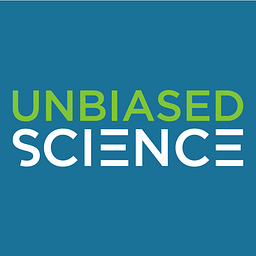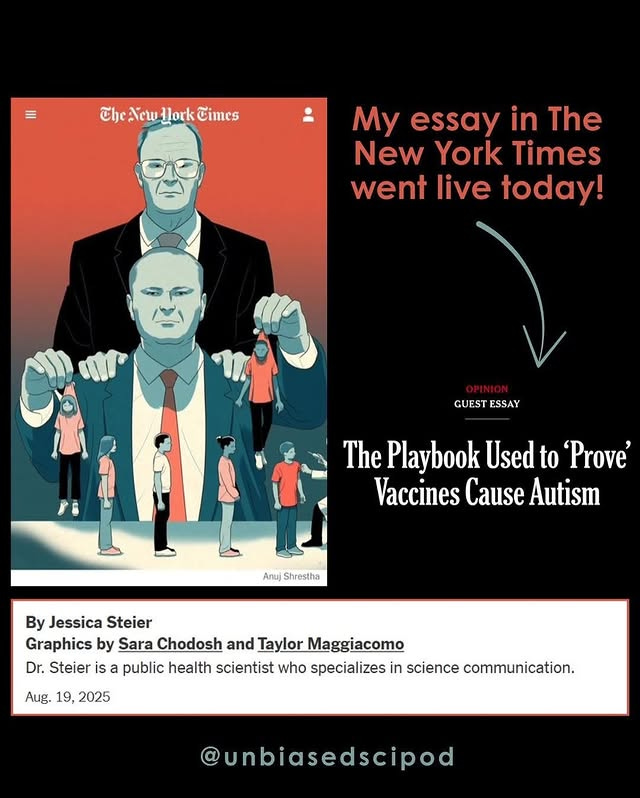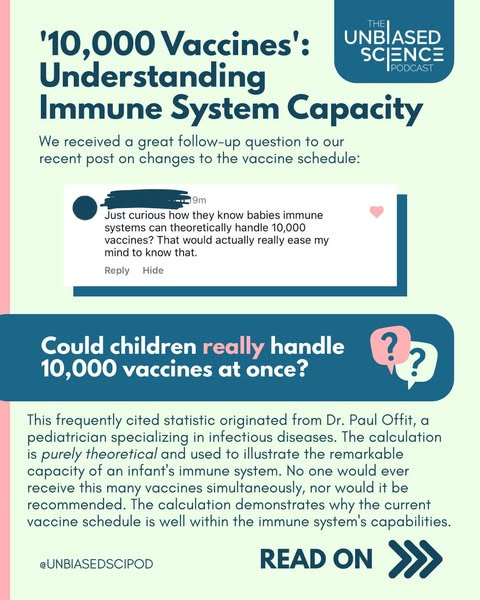One Week Later: Reflecting on "The Playbook Used to 'Prove' Vaccines Cause Autism"
Description
A week ago, my piece on “the vaccine playbook” appeared in The New York Times. I'm still processing what it means to see years of work crystallized into those carefully crafted graphics and explanations, now reaching millions of readers.
The response has been overwhelming - and overwhelmingly positive. Pediatricians wrote to thank me for giving them a tool to explain vaccine science to hesitant parents. Teachers said they're using it to demonstrate critical thinking. One reader from Long Island wrote, "I am one of the skeptics; so, I very much appreciate a well-written argument that doesn't talk down to the audience, and I have come away more open to listening." That comment alone made every revision worth it.
The Live Q&A: Where Real Questions Meet Real Answers
During my live Q&A session with Times readers, the questions revealed something crucial: not everyone asking about vaccine safety is an anti-vaxxer. Many are parents, grandparents, and healthcare providers genuinely trying to navigate complex information in an era of information overload. Their questions deserve thoughtful, evidence-based responses - not dismissal.
"What About Immune Overload?"
Multiple readers, including a grandmother whose siblings remain convinced vaccines overwhelm babies' immune systems, asked about "too many, too soon." This concern, while understandable, isn't supported by evidence. Today's entire pediatric vaccine schedule exposes children to about 320 antigens - far fewer than the 3,000+ antigens in vaccines from the 1960s. For perspective, babies encounter thousands of germs daily through normal activities. A single bacterial infection can expose them to thousands of antigens. In fact, just one B. pertussis bacterium (the germ that causes whooping cough) contains thousands of different antigens. Can you imagine how many antigens the immune system has to deal with when a child has whooping cough? Millions to billions. This is why our immune systems are so incredibly powerful. Scientists have calculated that, theoretically, an infant could handle 10,000 vaccines simultaneously - though obviously no one would ever do this. It simply illustrates how robust young immune systems are.
One reader shared how their child with autism had paused vaccinations for years "just in case" before finally catching up with no ill effects. This story encapsulates the real impact of vaccine misinformation - even those who intellectually reject the link can harbor lingering doubts that affect medical decisions.
"Why Don't Scientists Just Prove Vaccines Don't Cause Autism?"
This question gets at a fundamental challenge in science communication. As I explained to readers, science rarely deals in absolutes. We can't prove a negative with 100% certainty. What we have instead is overwhelming convergent evidence: over 40 high-quality studies involving 5.6 million children across seven countries, all finding no connection. The Institute of Medicine, after reviewing all available evidence, concluded vaccines do not cause autism. This is as close to certainty as science gets.
"But Parents See Their Children Change After Vaccination."
This heartbreaking observation deserves compassion and explanation, not dismissal. The apparent connection is about a timing coincidence. Autism symptoms typically become noticeable around 12-24 months, the same period when children receive multiple vaccines. This temporal association can feel compelling to parents witnessing their child's developmental changes. But large population studies help us distinguish correlation from causation. Brain differences associated with autism often develop during pregnancy, long before any vaccines are given to the child..
"What About Research Funding Bias?"
Several readers questioned why pharmaceutical company funding is considered acceptable while anti-vaccine organization funding isn't. This isn't about picking sides - it's about transparency and methodology. Pharmaceutical research operates within strict FDA oversight, requires pre-registration of studies, undergoes independent peer review, and faces scrutiny from international health organizations. The data, including raw trial data, must be made available to regulators. In contrast, the Geier studies lacked these safeguards, weren't conducted within established academic institutions with oversight committees, and used methodology that wouldn't pass basic scientific scrutiny.
"Has Autism Really Always Existed?"
When readers suggested autism was "non-existent" until recently, I pointed to the historical record. Leo Kanner first described autism in 1943, but retrospective analyses suggest cases existed much earlier - they were simply labeled differently or not at all. Many conditions we now understand were "invisible" to previous generations due to limited medical knowledge. The Swedish twin study beautifully illustrates this: while diagnoses steadily increased from 1993-2002, the prevalence of autistic traits remained stable, suggesting improved diagnostic practices explain much of the apparent rise.
The Other Feedback
Of course, not all responses have been positive. Some emails have been troubling; others commented on my appearance instead of engaging with the science (seriously, get a life). But these responses only underscore why this work matters. When people resort to personal attacks instead of addressing the evidence, it reveals the emotional, not rational, foundation of their beliefs.
Why This Matters Now
Robert F. Kennedy Jr.'s appointment of David Geier to the new federal autism study isn't just concerning - it's dangerous. As I documented in the piece, Geier's track record includes creating illegitimate review boards composed of family members, promoting chemical castration drugs as autism "treatment," and being fined for practicing medicine without a license. His methodological manipulations - comparing children from different time periods, ignoring confounders, citing only his own work - represent everything wrong with agenda-driven pseudoscience.
The tragedy is the opportunity cost. While researchers waste time and resources repeatedly disproving the vaccine-autism link, we could be making real progress understanding autism's complex causes and developing better supports for autistic individuals and families. Every dollar spent relitigating this false connection is stolen from research that could actually help.
Moving Forward
What gives me hope is that this piece is already being used as a teaching tool. Medical school faculty want it in their curriculum. High school media literacy teachers are using it to demonstrate how to evaluate evidence. Parents are sharing it in online groups. The hunger for clear, honest science communication is real.
Seeing the piece in Sunday's print edition was surreal. I drove to the local gas station in my pajamas to buy copies - yes, multiple copies, and yes, you better believe I'm getting one framed.







